March 25-29, 2013
California Institute of Technology
Pasadena, CA 91125
Juror Index
- Joe Parrish - Lead Juror
- Guillaume Blanquart
- Rolf Danner
- Detao Du
- Julie Castillo-Rogez
- Lou Friedman
- Jackie Gish
- Damon Landau
- Dan Mazanek
- Beverley McKeon
- Mark Pieczynski
- Tom Prince
- Garrett Reisman
- Joe Shepherd
- Nick Smith
- Jakob van Zyl
Jurors
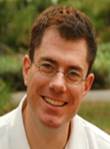 |
Guillaume Blanquart Assistant Professor of Mechanical Engineering California Insitute of Technology |
Guillaume Blanquart is an Assistant Professor in the Mechanical and Civil Engineering department at Caltech. He received his BS and his first MS in Applied Mathematics from …cole Polytechnique, France, in 2002. He received a second MS in Aeronautics and Astronautics in 2004 and his PhD in Mechanical Engineering in 2008, both from Stanford University. He continued as a Postdoctoral Scholar at Stanford University before joining Caltech in 2009. He received the NSF Career Award and the DOE Early Career Award in 2011. His research is funded by DOE, NSF, AFOSR, Boeing, and Energent.
Guillaume Blanquart focuses on modeling the interactions between combustion processes and turbulent flows. At the center of the work are fundamental problems such as the formation of pollutants, the effects of turbulence on the dynamics of nano-particles, and various hydrodynamic and flame instabilities.
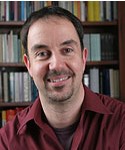 |
Rolf Danner Senior Scientist: Space Systems Division Northrop Grumman |
Dr. Rolf Danner is a senior scientist in the Science and Weather Systems section at Northrop Grumman Aerospace Systems. At Northrop Grumman, Rolf's focus is on developing astrophysics missions and related technology. Prior to joining Northrop Grumman, he was a research scientist at NASA's Jet Propulsion Laboratory and taught introductory astronomy at the University of Southern California. Rolf holds a PhD in experimental Physics from the Technical University Munich in Germany. He pursued undergraduate and graduate research at the Max Planck Institute for Extraterrestrial Physics in Germany, the European Space Agency in the Netherlands, at the California Institute of Technology and at observatories throughout the United States. Rolf is the author of numerous scientific research as well as popular science level articles on neutron stars, X-ray astronomy, optical interferometry and mission and instrument design.
 |
Detao Du Scientist, Reconnaissance Systems Group General Atomics Aeronautical Systems, Inc. |
Dr. Detao Du is currently the lead scientist on the Airborne Laser Communication Systems team for the Reconnaissance Systems Group (RSG) of General Atomics Aeronautical Systems, Inc. (GA-ASI). RSG focuses on providing integrated sensor equipment and software for Intelligence, Surveillance and Reconnaissance (ISR) aircraft platforms.
Since joining General Atomics/GA-ASI in 2003, Dr. Du has led the development of the PetaWatt Frontend laser system for Sandia National Lab; high power fiber lasers and amplifiers; a novel high-speed, free space optical communication system at the eye safe wavelength with excellent weather penetration; diode pumped high average power femtosecond laser system; diode pumped compact high energy laser designator and illuminator; and unstable Optical Parametric Oscillators.
His previous career history includes four years at JDS Uniphase and four years at Clark-MXR, Inc. At JDS Uniphase, Dr. Du developed a high power Erbium Doped Fiber Amplifier (EDFA) and high power Raman fiber lasers for Raman amplification. He served as a research scientist for Clark-MXR, Inc., where his major responsibilities included designing, developing ultra-fast high power laser systems. Among his accomplishments, he developed an Erbium doped ultrafast fiber and designed and constructed commercial Tera-Watt level Ti:Sapphire laser systems for R&D applications.
Dr. Du received his Ph.D. in Physics from the University of Michigan while working at its Center for Ultrafast Optical Science. There he designed and built a Table Top Terawatt (T3) laser system for the studies of laser induced optical damage, laser generated plasma channeling/filamentation, and laser micromachining of biological materials and metals. He also holds a Bachelor's of Science degree in Modern Physics from the University of Science and Technology of China.
 |
Lou Friedman Executive Director Emeritus, Co-Founder The Planetary Society |
When Louis Friedman helped co-found The Planetary Society, he brought to his position as Executive Director a wealth of experience in the space exploration community, including 10 years at the Jet Propulsion Laboratory and five at AVCO Space Systems Division. He has been a guiding force with the Society for over 20 years and remains as excited as ever about humanity's journey into the solar system.
Friedman is a native New Yorker, raised in the Bronx and passionately committed to his hometown baseball team, the New York Yankees.
His college career began when Sputnik launched the space age. Friedman earned a B.S. in applied Mathematics and Engineering Physics at the University of Wisconsin in 1961, followed by an M.S. in Engineering Mechanics at Cornell University in 1963. He earned his Ph.D. from the Aeronautics and Astronautics Department at M.I.T. in 1971 with a thesis on Extracting Scientific Information from Spacecraft Tracking Data.
From 1963-1968, Friedman worked at the AVCO Space Systems Division on both civilian and military space programs. The following decade, 1970-1980, found him at JPL, involved in planning deep space missions. His projects included Mariner-Venus-Mercury, the Grand Tour (Voyager), Venus Orbital Imaging Radar (Magellan), Halley Comet Rendezvous-Solar Sail, and the Mars Program.
In 1978-79, Friedman went to Washington, DC as the AIAA Congressional Fellow and worked on the staff of the subcommittee on Science, Technology, and Space of the Senate Committee on Commerce, Science and Transportation. He frequently returns to Washington, DC to testify to Congress regarding important issues concerning the space science community and the members of The Planetary Society.
Although the solar sail never launched for Halley's Comet, the concept of using light to propel a spacecraft intrigued Friedman so much that he wrote a book on the subject, Starsailing: Solar Sails and Interstellar Flight, and is now the Project Director for the solar sail mission created by The Planetary Society and Cosmos Studios: Cosmos I.
In 2011 Dr. Friedman was the co-lead for the Asteroid Return Mission Study sponsored by the Keck Institute for Space Studies, which has achieved widespread media attention in the space community.
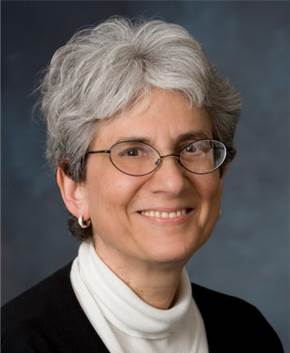 |
Jackie Gish Visiting Associate/Mentor California Insitute of Technology |
Jackie Gish is currently a visiting association/volunteer in GALCIT where she is available to graduate students as a mentor. She is also on the Advisory Board of the Women Mentoring Women Program at Caltech and mentors high school students through a program called MOSTE (Motivating Our Students Through Experience).
Dr. Gish retired from Northrop Grumman (formerly TRW) in 2011. Dr. Gish did optical diagnostics and then spent the majority of her 33-year career in lasers as a department manager, program manager and line-of-business manager. She was also the Director for Directed Energy Technology. Dr. Gish was a Northrop Grumman Technical Fellow, was elected as a fellow of the Directed Energy Professional Society (DEPS) and served on the Air Force Studies Board of the National Academy and the Advisory Board of Scientific Advisors for DEPS. She was elected to the National Academy of Engineering in 2011.
Jackie Gish received her bachelor's degree from UCLA, an MBA from USC and her PhD from Caltech in Chemical Physics and did a postdoctoral fellowship at UCLA prior to joining TRW.
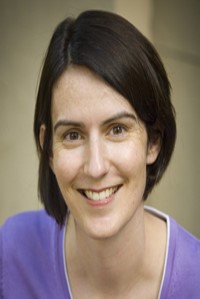 |
Beverley McKeon Professor of Aeronautics and Associate Director of the Graduate Aerospace Laboratories at Caltech (GALCIT) California Insitute of Technology |
Beverley McKeon is Professor of Aeronautics and Associate Director of the Graduate Aerospace Laboratories at Caltech (GALCIT). Her research interests include interdisciplinary approaches to manipulation of boundary layer flows using morphing surfaces and fundamental investigations of wall turbulence at high Reynolds number. She was the recipient of a Presidential Early Career Award (PECASE) in 2009 and an NSF CAREER Award in 2008, and she currently serves as an editor of Experimental Thermal and Fluid Science.
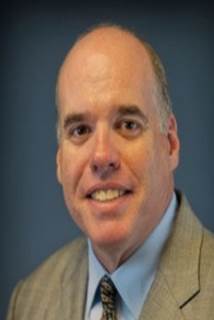 |
Joe Parrish - Lead Juror Deputy Manager, Mars Program Formulation Office NASA - Jet Propulsion Laboratory |
Joseph Parrish currently serves as the Deputy Manager, Mars Program Formulation Office at the NASA Jet Propulsion Laboratory (JPL), where he is responsible for technology assessment and mission architecture planning for future robotic missions to Mars.
Mr. Parrish recently returned to JPL after an assignment to NASA Headquarters in Washington DC as the Deputy Chief Technologist in NASA's Office of the Chief Technologist (OCT).
Before joining JPL, Mr. Parrish was President of Payload Systems, Inc. and Vice President of Research & Development at Aurora Flight Sciences Corp. - two small businesses in Cambridge, MA providing aerospace technology development and implementation services to academia, government, and industry.
Prior to his time in industry, Mr. Parrish was employed by NASA, where he served as the Robotic Systems Architect for the International Space Station program, led the development of a spacecraft servicing telerobot named Ranger, and served as the NASA Program Executive for several solar system exploration missions to Mars and beyond, including the Mars Science Laboratory, Mars Scouts, and the Mars Sample Return Mission.
Mr. Parrish has received numerous honors, including the MIT Luis de Florez Prize, several NASA Group Achievement Awards, the NASA Exceptional Performance Award, and the NASA Exceptional Service Medal. Mr. Parrish holds Bachelor's and Master's degrees in Aeronautics and Astronautics from the Massachusetts Institute of Technology.
 |
Mark Pieczynski Vice President, Southern California Engineering Center and Space Launch Business Development Orbital Sciences Corporation |
Mr. Mark A. Pieczynski is Vice President of Orbitalís Southern California Engineering Center in Huntington Beach, CA. In his position, Mr. Pieczynski oversees the technical support provided to Orbitalís various launch vehicle and space systems programs, as well as being responsible for on-site staff management and development. He also is responsible for Orbitalís Space Launch Strategic Development.
Since 1990, Mr. Pieczynski has held a series of senior-level positions on Delta launch vehicle programs for McDonnell Douglas, The Boeing Company and subsequently United Launch Alliance (ULA) that included responsibility for engineering, manufacturing and launch site activities, as well as contractual and financial matters. From 1995 to 2002, he served as the Program Manager for the deployment of Iridium low-Earth orbit communications satellites aboard Delta II rockets. In 2002, he was promoted to Director of U.S. Air Force Delta II Programs, overseeing the launch of military spacecraft for the U.S. Department of Defense and its agencies such as the National Reconnaissance Office, Defense Advanced Research Projects Agency and Naval Research Laboratory.
Mr. Pieczynski also served as the Delta Program Site Executive in Southern California, overseeing a workforce of over 900 ULA employees. He was responsible for coordinating the transition process for the ULA employees at the Huntington Beach location while all Delta rocket programs were being moved to ULAís new Denver, CO location. His areas of responsibility in that process included maintaining a program knowledge base to successfully transition the programs, serving as the primary interface between Boeing and ULA, and overseeing all employee-related transition activities for those employees who chose to relocate and those who chose not to transfer to the Denver location.
 |
Tom Prince Professor of Physics, Director of Keck Institute for Space Studies California Institute of Technology |
Dr. Thomas A. Prince is a Professor of Physics at the California Institute of Technology holding a joint appointment with Caltechís NASA Jet Propulsion Laboratory (JPL) as a Senior Research Scientist. Between May 2001 and June 2006, Prince was the Chief Scientist at JPL. He is currently Director of the W.M. Keck Institute for Space Studies at Caltech.
Prince, is a native of Cleveland, Ohio. He holds a bachelor's degree from Villanova University and master's and doctorate degrees in physics from the University of Chicago.
Prince began his research career in experimental cosmic ray astrophysics before coming to the Caltech campus to work in the area of experimental gamma ray astronomy, collaborating with the high-energy astrophysics group at JPL. Prince became a Millikan Fellow in 1980 and joined the Caltech professorial faculty in 1983. Detection and study of neutron stars and black holes has been a continuing theme in Prince's research, starting with his gamma ray observations of compact objects in the galactic center region. He participated in several expeditions to the Australian outback in the late 1980's to make balloon observations of the radioactive decay energy from Supernova 1987a.
During the 1980's, Prince became interested in the evolving field of parallel computing which he applied to several areas of astronomy including radio, x-ray and gamma-ray pulsar detection, imaging infrared surveys, optical interferometric imaging, and virtual observatory technology. His current research area is the development of techniques for detection of gravitational waves from neutron star and black hole systems. He is US Mission Scientist for the Laser Interferometer Space Antenna (LISA) and was a member of the ground-based Laser Interferometer Gravitational-wave Observatory (LIGO).
Among the positions that Prince has held are: Associate Director, Caltech Center for Advanced Computing Research (CACR); member of the National Research Council Commission on Physical Sciences, Mathematics, and applications; co-chair of the National Research Council Committee on Astronomy and Astrophysics; and chair of the NASA Gamma Ray Observatory Users' Committee.
He is a Fellow of the American Physical Society and has received the NASA Distinguished Service Medal.
A resident of South Pasadena, Prince is married to Charlene Reichert and has three children, Jesse (33), David (30), and Anya (27).
 |
Garrett Reisman DragonRider Project Manager SpaceX |
Garrett Reisman is responsible for working with NASA to prepare SpaceX's Falcon 9 rocket and Dragon spacecraft to carry astronauts. He was the SpaceX project manager for CCDev2 - a $75 Million partnership with NASA to mature the Dragon Spacecraft launch abort system and crew accommodations. Reisman is now the SpaceX project manager for CCiCap - a $440 Million partnership with NASA to complete the design of the Dragon-Falcon 9 crew vehicle, perform hardware testing, ensure astronaut safety and pave the way for NASA certification of the vehicle.
Reisman came to SpaceX from NASA where he served as an astronaut starting in 1998. He has flown on two space shuttle missions, during which, he logged over 3 months in space including over 21 hours of extravehicular activity (EVA) in 3 spacewalks. Dr. Reisman served with both the Expedition-16 and the Expedition-17 crews as a Flight Engineer aboard the International Space Station.
Reisman holds a B.S. in Economics and a B.S. in Mechanical Engineering and Applied Mechanics from the University of Pennsylvania, an M.S. in Mechanical Engineering from the California Institute of Technology, and a Ph.D. in Mechanical Engineering from the California Institute of Technology. He is an FAA Certified Flight Instructor.
 |
Joe Shepherd C. L. Kelly Johnson Professor of Aeronautics and Professor of Mechanical Engineering; Dean of Graduate Studies California Insitute of Technology |
Joe Shepherd is the C. L. "Kelly" Johnson Professor of Aeronautics and Professor of Mechanical Engineering at the California Institute of Technology in Pasadena, CA. He teaches and conducts research on fluid mechanics, chemistry, thermodynamics, structural mechanics of explosions and also related applications such as propulsion. Since April 2009, he has also been the Dean of Graduate Studies at Caltech.
The Explosion Dynamics Laboratory specializes in studies of combustion, fuel properties, fluid and solid dynamics relevant to explosions, shock waves, and high speed impact.
The T5 Hypervelocity Shock Tunnel Facility and shock tube laboratories are dedicated to the study of supersonic and hypervelocity flows with an emphasis on real gas effects at planetary re-entry conditions and novel supersonic flow effects.
 |
Nick Smith Advanced Programs Manager Lockheed Martin |
Nick Smith is Senior Manager of Advanced Programs within the Civil Space line of business at Lockheed Martin. He has responsibility for the development of mission architectures, mission designs, advanced spacecraft concepts, mission enabling technologies, and proposals for science related endeavors within NASA, including planetary science, astrophysics and heliophysics, and Earth science.
Mr. Smith began his Lockheed Martin career in 1984 as a parachute engineer for the Space Shuttle program. He was the spacecraft mission design lead for the Mars Global Surveyor mission, the capsule recovery design lead for the Stardust comet sample return mission, and the chief system engineer for the Genesis solar wind sample return mission. In addition to these flight programs, he has worked more than 20 proposal campaigns as well as numerous advanced studies for human and science exploration.
Mr. Smith holds a B.S. degree in Mathematics from Colorado State University and an M.S. degree in Aerospace Engineering from the University of Colorado.
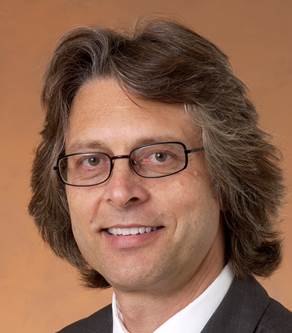 |
Jakob van Zyl Associate Director, Project Formulation and Strategy NASA - Jet Propulsion Laboratory |
Dr. Jakob van Zyl is the Associate Director of Project Formulation and Strategy at NASA's Jet Propulsion Laboratory. Formerly, he was the Director for JPL's Astronomy and Physics Directorate. Van Zyl received an honors degree cum laude in electronics engineering from the University of Stellenbosch, Stellenbosch, South Africa. He received both his master's and his doctorate in electrical engineering from Caltech.
Van Zyl joined JPL in 1986 and held positions of increasing responsibility in the synthetic aperture radar program. In addition, he managed the Radar Science and Engineering Section, the Earth Science Flight Missions and Experiments Office, and the Focused Physical Oceanography and Solid Earth Program Office. He was appointed Deputy Director for the Astronomy and Physics Directorate in 2002. He has been an adjunct faculty member in the Mechanical and Aerospace Engineering Department, University of Southern California, where he taught the class "Remote Sensing Systems from Space" from 1997 to 2001. Since 2002, he has been teaching the class "Physics and Techniques of Remote Sensing" at Caltech.






